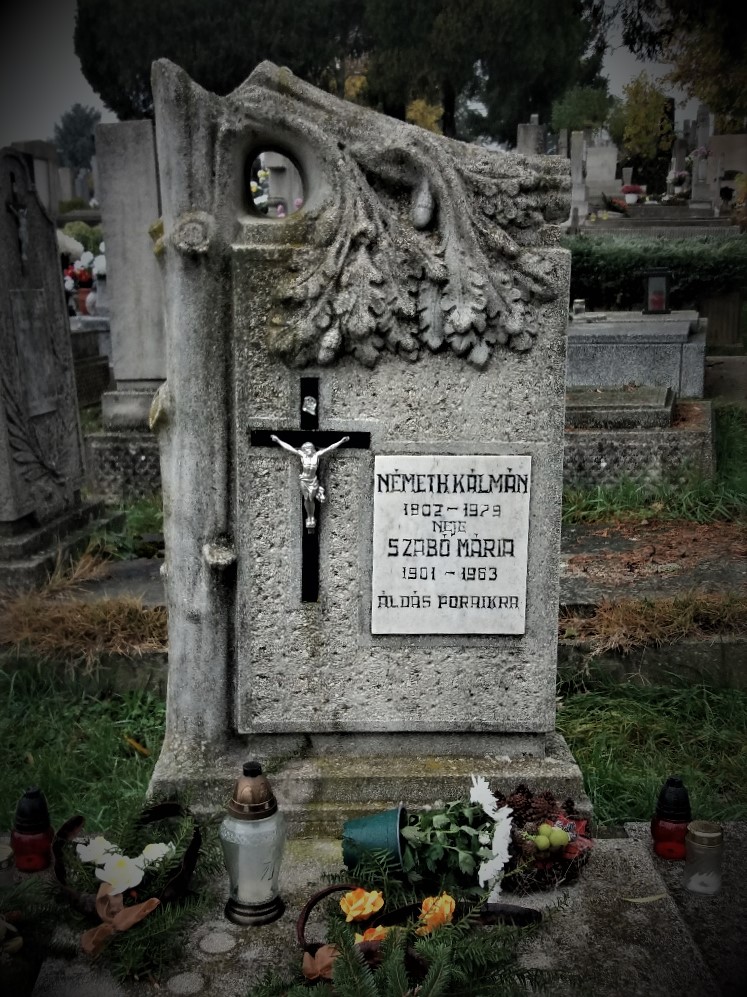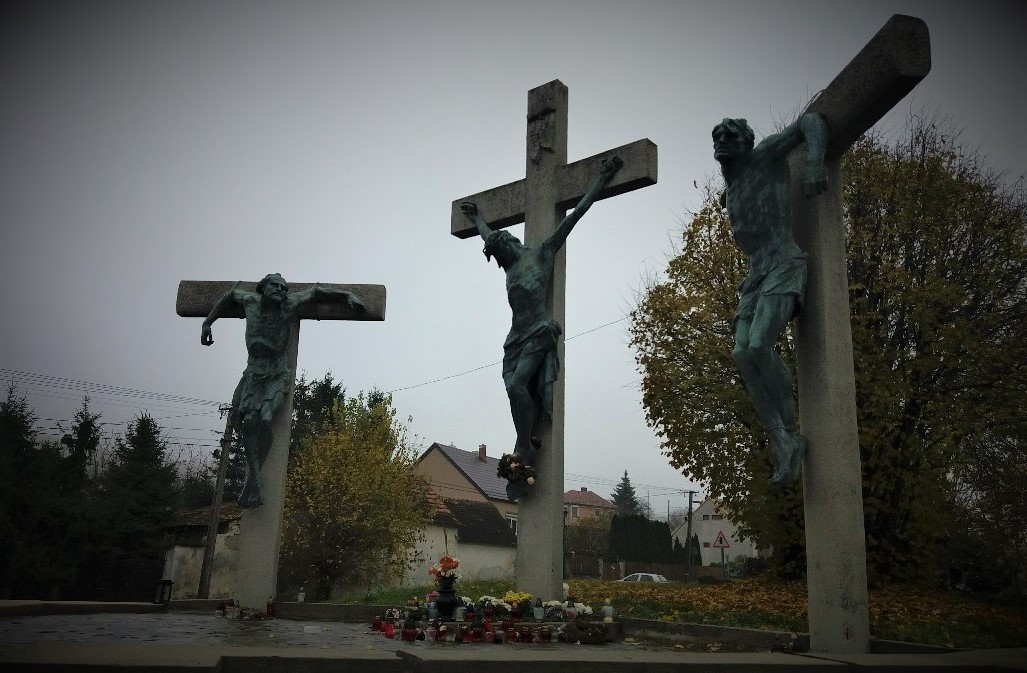


To fully appreciate the roll-call of greats buried in the town cemetery in Sümeg, you need to know the history of the place and its players. Names like Kisfaludy (Sándor and his nephew Móric, the poet and the soldier), Darnay (archaeologist), Eitner (MP), and Ramasetter (Vince, who introduced the world to wines from the Balaton) are spoken with reverence. But I was more taken with the statuary. It was my first time seeing double headstones, perhaps peculiar to the region, as there were many variations on this theme.

I’d never seen the broken branch before, either. And again, this wasn’t unique. I’ve read that a broken tree or branch represents a life cut short. Think of a break in the family tree. It’s more usually used on the headstones of those who die young but Mária and Kálmán had decent innings, given the days in which they lived.

What really struck me though, was the detail in some of the larger tombs. It was a miserable day. Drizzly. Damp. Grey. My photos don’t do them justice. But look at that woman opening the door to the afterlife.






The last two photos show a portrayal of Karolina Luiszer. The work of sculptor János Istók, it marks the grave of her daughter Sára Darnay and Sára’s husband Károly Tóth. How beautiful to have your mother watching over you for all eternity.
I mentioned before that I’d grown up believing that Jesus was nailed to the cross and the two thieves tied. I was wrong – or was I? While there is no specific mention of it in the Bible, the calvary at Sümeg differed in this detail from what we saw in Vonyarcvashegy.


The stations of the cross are beautiful. Each one intricately carved and very lifelike. Good Friday must be a very special day in Sümeg cemetery.


There is one section of the cemetery that seems to have fallen into disrepair. It’s not that the deaths were earlier than some of those buried elesewhere – perhaps it’s beacuse they’ve no one left to look out for them.

Cemeteries have their stories. They have tales to tell. Four boys, not yet teenagers, but inseparable friends bid their families goodbye after lunch one January day with promises that they’d be home before dark. They were off to explore an abandoned quarry. They were doing what boys do – building bunkers and tunnels and having adventures. But the wet sand collapsed on three of them – Márk, Richard, and Bálint – while Ádam watched in horror. The boys are buried side by side in the cemetery, in death as they were in life.

The sight of Sümeg castle in the distance shrouded in grey mist was in stark contrast to the colours still vibrant from the November 1st commemorations. Had it not been bitterly cold and damp and wet, I’d have stayed longer. But now that I know where it is, I’ll be back.
